Rebuilding vision and building consensus
Elder Lin Yuanchang talked about the target management of the Mustard Seed Society
Interview/Gao Lili
Organized/Weng Jingyu
Photo provided/Mustard Seed Association website

Q: In recent years, Sister Lin Roushen, a mustard seed worker, has sent me many letters from the past of the founder, Mrs. Sun Lilian. From the letters, I learned that she has done many great works. In the past few years, I have had the opportunity to participate in ministry to help Cambodian and child prostitutes, and I can better understand the challenges of this type of ministry. Elder Lin himself is an outstanding entrepreneur. Like me, he is the son of a pastor. He is also a very native Taiwanese and has deep feelings for this land. After all, Mustard Seed will be the first social welfare institution in Taiwan, and it is also a Christian institution, which is profound. I know that Elder Lin has been very careful in running the Mustard Seed Association during his seven years as chairman. First of all, I would like to ask Elder Lin to give an introduction to the Mustard Seed Association (for a more detailed report on the association’s ministry, please see pages 72 to 76 of this issue) ).
In 1927, Pastor James Sun and his newlywed wife Sun Lilian came to Taiwan from the United States and settled in Tamsui. They took over the post of principal of Taipei Theological School (now Taiwan Theological Seminary) and Tamsui Middle School. In 1937, Japan launched a war of aggression against China and Taiwan entered a wartime regime. The Japanese government deported Sun and his family back to the United States in 1940. After the war, Pastor Sun and his wife returned to Taiwan in 1947. In 1948, they launched mountain medical mission services in Nantou, Hualien and other places. In 1952, they started relief work under the name of the Mustard Seed Society. In 1962, the Christian Mustard Seed Society established its presence in Taiwan. Officially registered.
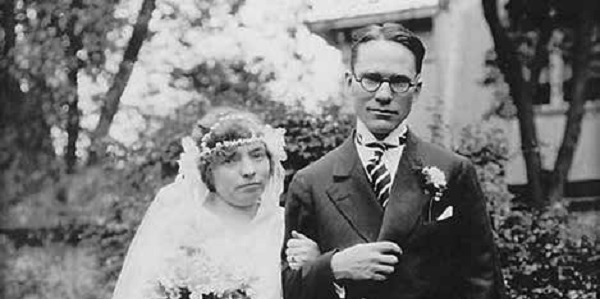
▲In the early days of their marriage in 1927, the couple had already decided: "We only live once, let's serve where it is most needed." The picture shows the wedding photo of Lilian Sun and Pastor James Sun.
The era of Japanese occupation ended, and the Suns came to Taiwan again. At that time, it was stipulated that the wife of a missionary could only support the missionary. She felt that she could not do anything, so she told her husband that she wanted to help these lonely people in Taiwan, so she said: "I want to be my wife's missionary, not a missionary." Mrs.
The Leshan Sanatorium in Jiulong was originally bought by Presbyterian missionary Dai Renshou, but because the Japanese government wanted to build a Hansheng (leprosy, Taiwan has changed its name out of respect for the patients) hospital there, he gave the land to The Japanese government went to Bali to open a happy life park. In 1949 and 1950, the leprosy (leprosy) patients in Leshan Sanatorium were very pitiful and had no cure and often committed suicide. The local pastor called Mrs. Sun Lilian to come and help. Those people had children, so she helped the poor patients who were unable to take care of them. Children were brought out and kindergartens were set up to take care of them. At that time, many teenagers were wandering on the streets and were taken to the police station. She took these homeless children out and set up a juvenile home for them.
From here, many ministries were derived. It can be said that as long as the government cannot do it, she will do it wherever there is a need.
Sister Sun Lilian once said three famous sayings. The first sentence was said when I was in college: "We only live once, let us go to the place where we are most needed." The second sentence was said when we first arrived in Taiwan: "I want to be my wife's missionary, not the missionary's wife. "The third sentence is that whenever a co-worker complains that she has to do too much and is unable to do what she wants, she will reply: "We can't do it, but God can. Let us pray."
It was under these circumstances that the Mustard Seed Society was formed. But later, primary school education became popularized, middle schools were exempted from examinations, and the government also provided aboriginals with preferential treatment for higher education. As a result, the number of people served gradually decreased. In fact, many of the older generation of aboriginal theological students or pastors at Yushan Theological Seminary, those over the age of 40 or 50, came from the Mustard Seed Society’s workshops and cram schools.
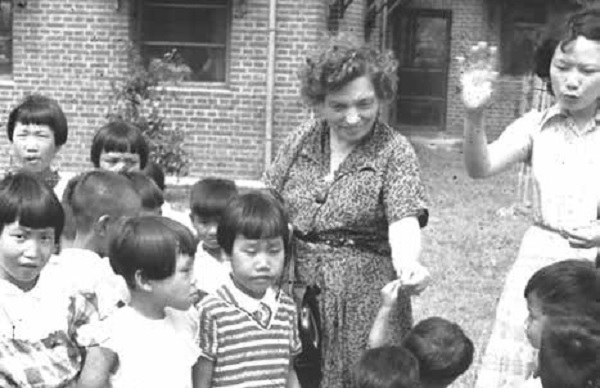
▲Sun Lilian decided to become a missionary for wives and help poor children, instead of just being a missionary’s wife.
Q: Why are you so burdened with mustard seeds?
Due to the rapid changes in Taiwan's political and social environment in the past two decades, Mustard Seed adopted a more conservative strategy and failed to grasp the pulse of society, and its finances were once very difficult. In 2006, thanks to everyone's election of me as chairman, I became more actively involved in and promoted the renewal of the organization. I retired from the for-profit business at the age of forty-five because I wanted to help churches and institutions do better in their management and evangelism. So before I became the chairman of the board, I had served as a director for two terms. My mentality has always been: "If there is a more suitable person, we will try our best to cooperate so that the person in charge can do a better job; but if I am needed, I will I will do my best to be a faithful steward of the Lord.”
Q: How do you lead the co-workers of the Mustard Seed Association to reorganize their vision and build consensus?
The first is to clarify the system and fire some incompetent people. When I first took over, I often told my colleagues that we must have a vision and ideals, otherwise we would be taking advantage of these disadvantaged children to "keep our jobs." I encourage them to improve their vision and see more and further missions, so that Mrs. Sun’s vision and ideals can continue.
In the past ten years or so, there has been no salary increase in Taiwanese society, but a salary regression. However, the salary of the Mustard Seed Association has been adjusted positively, which makes co-workers feel that there is hope in serving here. They also know that the organization requires something in return. Not only will the salary of good people increase, but the year-end bonus will also increase. But since there is a salary increase, work must have targets. I often encourage colleagues to set long-term goals, set KPIs, key performance indicators (key performance index), evaluate your performance this year, what areas need to be improved, and set goals for next year. new goals.
After implementing this for several years, I invited Pastor Chen Xianyi, who is very experienced in business management, to lead our "Goal Consensus Camp." After two or three consensus camps with directors and senior managers, when the time was right, I invited the new president Officers drive management by objectives. The new director-general was very cooperative, capable, and capable of learning. He immediately looked for resources and found the Productivity Center to teach two courses on how to make long-term planning and how to make a balanced scorecard.
Even though the co-workers had no previous experience, we managed the goals well for this year, five years, ten years...and forty years. They did more than I thought they would. I also did goal management in the corporate world 20 or 30 years ago, and I have made a lot of progress now. They just learned it for the first time and they did better than I expected.
For example: First we want the goal to be more focused. In the past, we served people from infants to the elderly, but there were not enough manpower and resources. Whatever we do now, we hope to achieve excellence and replicate our successful experience.
In the future, we hope to use more churches to adopt local poor children. We hope that in 40 years, there will be more than 1,000 churches cooperating with us. Currently, the kindergarten is only in Xinzhuang, but in the future we hope to have it in the north, central and south east; Juvenile Hospital The home is only in Hualien, but will be available in various regions in the future. We hope to set management goals for the next forty years based on these consensuses.
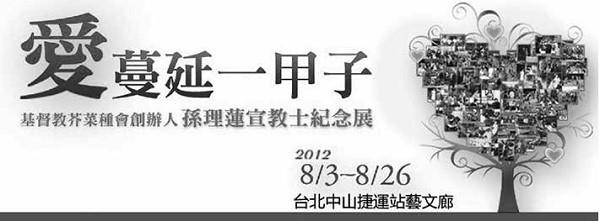
▲The Missionary Son Lilian Memorial Exhibition held from August 3 to 26, 2012 touched countless people.
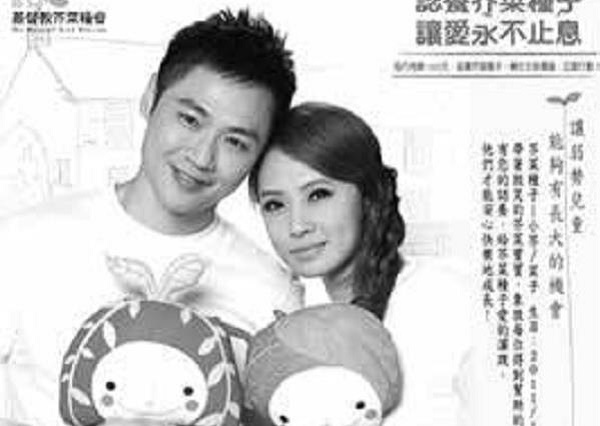
▲Song Damin and his wife became charity ambassadors and raised funds for poor children.
Q: Compared to businesses, what are the special challenges of leading in a gospel organization?
Many Christians often have the misconception that only serving within the church can be considered serving God. When they work, they only do what they need to do, but they only focus on church service. They never think about how to make their work more effective. They even drop their work and leave when something happens in the church.
But I have also met some Christians who are serious about their work and service. They know that they are serving God in the workplace. Even picking up a scrap of paper in the toilet is important. But many Christians are not like this. We often fail to grasp God’s will.
I have also seen many Christians who have a close relationship with God and a profound life connection. They brought others to believe in Jesus within a few years of believing in the Lord. Times have changed. Blue-collar workers used to be the majority in society, but now white-collar workers are the majority. In this case, character is even more important. When I have the opportunity to speak in churches or organizations, I often mention: "In churches, we often pay too much attention to love but ignore the requirements, and companies may pay too much attention to the requirements but neglect love. There must be a balance between the two." This is something that many Christians have not figured out. place.
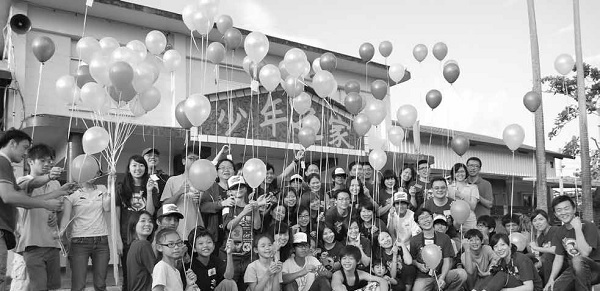
▲The Children's Home of the Mustard Seed Association, which has re-united consensus and set goals for management, is full of vitality.
Q: Can you describe your own upbringing?
I am a third and fourth generation Christian because my grandmother, grandmother, and great-grandmother all believed in Jesus at the same time. My father later went to seminary. At the Xinwu Presbyterian Church where my father pastored, church members often said, consciously or unconsciously, that I should take over my father’s pastoral work.
But after I graduated, I worked for Texas Instruments. Later, Texas Instruments focused on integrated circuits (ICs). One product decided not to be produced and was planned to be outsourced to a Korean company. At that time, several of our colleagues were now the chairman and Another Mr. Wu and I thought that since this product had great potential, we decided to set up a company. Facts have also proved that this product is indeed quite popular, it is LED.
At that time, LED technology could only be used as indicator lights, and it was impossible to make lighting lamps. But now there are ways. We established Lite-On Electronics Company at that time. I later became the general manager for six years. I felt that I should apply what I learned in the corporate world to the church world, so I retired from the front line and only served as a director. I retired when I was forty-five years old. Since then, I have been involved in serving churches and institutions.
Q: As far as you can remember, what is the most meaningful thing when running a business?
First, when I was the general manager, I established a fellowship within the company. Whenever the company faces difficulties, we pray for God’s grace through fellowship. The second is that since I started making money, I have dedicated one tenth to God, and more than one tenth. I know that my money is given by God, and I must give it to Him according to His principles. Many Christians often ignore this, and neglecting turns into stealing (see Malachi 3:8-10)! So I often encourage Christians to tithe, and even encourage pastors to preach the word of tithing. This is a great blessing to believers, not a pressure.
In the past twenty years of serving in churches and evangelical institutions, I have found that logically speaking, churches and evangelical institutions should be the best managed. Because we have God’s involvement, everyone should be able to speak the truth in love and treat each other with kindness. Be kind to one another. But I found that the management of churches or gospel organizations is often more difficult than that of ordinary companies, because many Christians do not have a real life connection with God. They often criticize, judge, and use churches or organizations to take money that they should not take. This is very serious. thing. Some people even give up their faith for the sake of power and position, and form cliques for personal gain. If those who enter the church do not have real spiritual life and do the same things as unbelievers outside, they are not worthy of being called Christians.
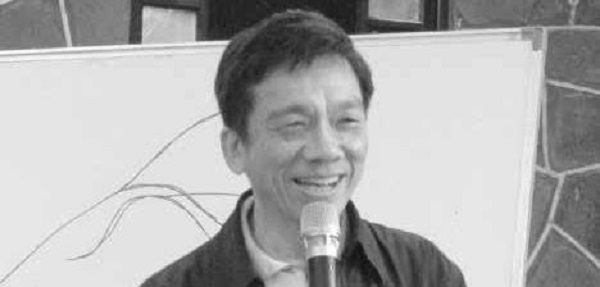
▲In addition to being a successful entrepreneur, Elder Lin Yuanshang also has a lifelong love for God and the pursuit of excellence and growth. (Picture source: Elder Lin Yuanchang)
Q: What advice would you give to Christian young people?
I started my business in 1975 when I was twenty-eight years old. When young people start a business, they must first ask God: "Is this your will?" I think seeking God, knowing God, and adhering to the principles of what God wants us to do are the first things we need.
The second is, no matter what you do, you must do your best, especially management skills and talents. More than half of all companies fail within five years. Therefore, management must be done well and professionals must be outstanding in order to master business operations.
The third is, don’t be too ambitious. Make a product well first. Don’t do everything. Set priorities.
Q: One thing I discovered recently is that because of their Christian background, the entire corporate environment in Europe and the United States is healthier than in Asia. There are some phenomena that are very heartbreaking to see. People often find that Asian bosses’ EQ or work ethics are very different. What should they do?
The moral standards of shopping malls in Taiwan and Southeast Asia are very low. Many companies require kickbacks and bribes to get orders. I think there are only two ways to deal with this. The first is to pray and ask God to help you find a better boss or company. For example, some companies have non-Christian bosses but use Christian principles to do things, such as TSMC.
The second is to organize some people in the company to pray for the boss. There was an instance where a Christian boss actually told his employees: "Because you don't smoke or drink, you are not suitable to be in this company." Therefore, we really need to pray for the boss to make him follow God's will. Go run the company.
As for innovation and patents, companies must carefully plan and establish R&D departments or new businesses. When I was the general manager, I set the profit from the beginning of 25% to come from new products. Similarly, the Mustard Seed Association has also established a research and development unit to understand new social trends, hoping to become a pioneer in social welfare organizations in the future.
The most important thing in any project is people. Every boss must train employees, and first-level supervisors must prepare a reserve list for second-level supervisors and discover potential talents. This is all part of our forty-year plan.
Q: Can you describe a special experience between you and the Lord?
I have believed in the Lord since I was a child and have never doubted God. In addition, my mother resurrected from the dead, so I have believed in miracles since I was a child. Just like Mark Chapter 16:17, those who believe will be followed by signs and wonders, and I dare to pray for them. But before I turned fifty, I didn’t have enough faith. I often went to the hospital to pray for patients with terminal cancer. When I left the hospital, I felt that those people could not be cured. After turning fifty, I participated in many organizations to promote the renewal of the Holy Spirit, allowing me to establish a closer relationship with God and experience the power of the Holy Spirit. The most impressive thing was my thyroid surgery. After the surgery, my speech was breathless, but I was not afraid and was still full of confidence. Then I went to the United States to undergo vocal cord surgery. When the doctor judged that another surgery was needed, my wife and I decided not to have any surgery and to look to God for healing. In almost silence, we still sang "We Have a Great and Wonderful God" every day. Praise God.
Later, I went to the Lord Master Pioneer Church to learn to wait on the Lord and seek God’s healing. While praying, a brother saw me in a vision singing “The Best Friend Is Jesus.” I testified for God in the Taiwanese church and also sang “How Great Thou Are", witnessing and evangelizing in Chinese- and English-speaking churches.
I grasped this promise at that time, and by praising God and waiting on God, I became closer to God because of suffering. I could wait on God at all times. My body recovered to be healthier than before, my voice could sing, and I made progress every day. In the past, I prayed and begged God when investing, but now I wait on God, seek visions, and let God respond to me.
My wife is very confident and prays more than I do. We have a very good relationship. I don’t even have to tell her about my dedication, and she never blames me. As for investment matters, I usually ask her to pray together and seek confirmation together. Now my son handles most of the things, and my children also practice their relationship with God together.
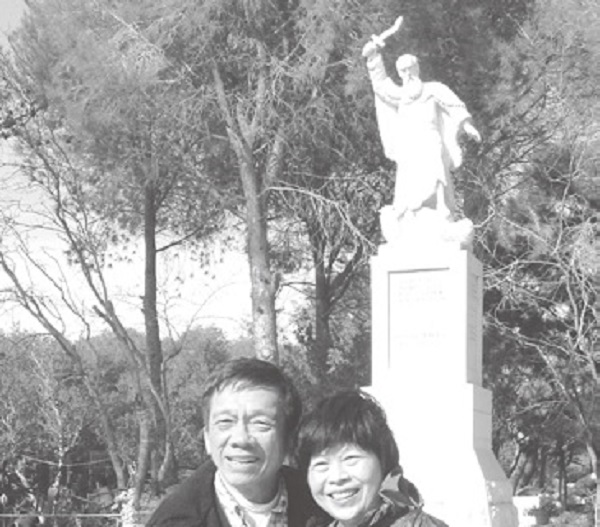
▲Mr. and Mrs. Lin Yuanchang have a deep love for each other, love the Lord together, contribute generously, and have experienced countless graces from God. The couple traveled to Israel together and happily took photos in front of the statue of Elijah on Mount Carmel. (Photo source: Elder Lin Yuanshang)
Q: Why are you and your wife able to serve and contribute like this together? I often hear people say that this donation should not be known to my spouse, and I feel sad.
(Elder Lin expressed with a smile) Everything we do must let people see God, not people. Many times our testimonies are very good, but people only see God’s blessings, but ignore what God has done in this person.
Everything is God's grace. Soon after my marriage, I discovered that Yuansheng had the gift of giving. For example, if I knew there was a need for a certain donation, the amount in my mind might be $50, but Yuansheng’s amount was $100. He always has more than me, so I understand that he has the gift of dedication, so I can only support and never hinder him. Whatever God says will come true, and He will open the windows of heaven and pour down His blessings.
(Postscript: At the end of this touching interview, I believe it will inspire many couples to support each other in devotion instead of fighting about it. We believe that this is why God the Father has greatly blessed Elder Lin and his wife in their career and finances. one of their reasons).
